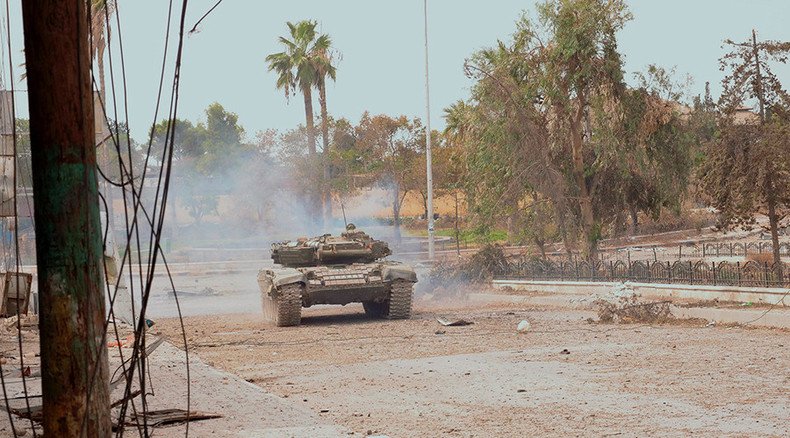Re: Regional geopolitics
US Special Forces deployed as ‘human shields’ to salvage terror assets in Syria
Obama’s decision to send Special Forces into Syria is being widely viewed as a US military escalation in the country.
The troop dispatch also signals that the US trying to forestall Russian successes in wiping out Washington’s regime-change assets in Syria.
In short, the US Special Forces are being used as “human shields” to curb Russian air strikes against anti-government mercenaries, many of whom are instrumental in Washington’s regime-change objective in Syria.
First of all, we need to view a host of developments, including the hastily convened “peace talks” in Vienna, as a response by the US and its allies to the game-changing military intervention by Russia. That intervention, beginning on September 30, has not only dealt massive blows to militants, it has completely changed the balance of forces to give the Assad government the upper hand in the war against foreign-backed extremists. That, in turn, has sent the US-led powers trying to topple Damascus into disarray.......
US Special Forces deployed as ‘human shields’ to salvage terror assets in Syria
Obama’s decision to send Special Forces into Syria is being widely viewed as a US military escalation in the country.
The troop dispatch also signals that the US trying to forestall Russian successes in wiping out Washington’s regime-change assets in Syria.
In short, the US Special Forces are being used as “human shields” to curb Russian air strikes against anti-government mercenaries, many of whom are instrumental in Washington’s regime-change objective in Syria.
First of all, we need to view a host of developments, including the hastily convened “peace talks” in Vienna, as a response by the US and its allies to the game-changing military intervention by Russia. That intervention, beginning on September 30, has not only dealt massive blows to militants, it has completely changed the balance of forces to give the Assad government the upper hand in the war against foreign-backed extremists. That, in turn, has sent the US-led powers trying to topple Damascus into disarray.......












Comment